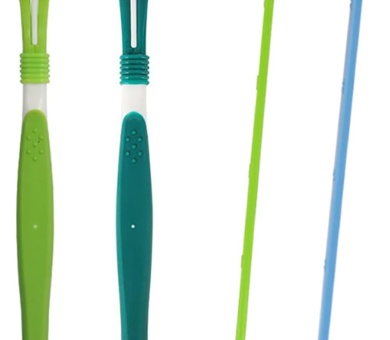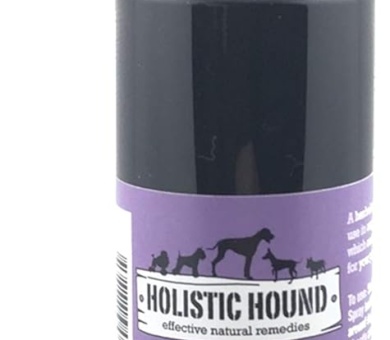The Future of Canine Nutrition: Exploring Next-Gen Dog Supplements in 2025
As pet ownership evolves from mere companionship to a holistic family dynamic, the demand for advanced canine nutrition is skyrocketing. By 2025, the $10 billion pet supplement industry is poised to undergo a radical transformation, driven by cutting-edge science, sustainability imperatives, and tech integration. This article explores the innovations set to redefine how we nourish our four-legged friends.
1. Personalized Nutrition: Tailored to DNA and Lifestyle
Gone are the days of one-size-fits-all dog supplements. In 2025, nutrigenomics—the study of how genes interact with diet—will take center stage. Companies like Embark Vet and Wisdom Panel are expanding beyond DNA testing to offer bespoke supplement regimens. A Labrador prone to hip dysplasia might receive a blend of CRISPR-engineered collagen peptides, while a senior Border Collie could get nootropics like lion’s mane extract to support cognitive health.
AI-powered apps will further refine this personalization. Imagine a platform that syncs with your dog’s wearable health tracker, analyzing activity levels, sleep patterns, and gut microbiome data to adjust supplement dosages in real time. Startups like Petlab Co. are already experimenting with algorithms that predict nutritional gaps, signaling a future where your phone alerts you to boost your pup’s omega-3 intake after a high-energy day.
2. Functional Ingredients: Beyond Basic Vitamins
The supplements of 2025 will target specific health outcomes with pharmaceutical precision:
- Cognitive Boosters: Nootropics such as phosphatidylserine and adaptogenic mushrooms (reishi, cordyceps) will combat canine cognitive dysfunction, enhancing memory and alertness in aging dogs.
- Joint Health 2.0: Nano-hydrogels and 3D-printed glucosamine structures promise faster absorption and longer-lasting joint lubrication, potentially delaying surgeries.
- Gut-Brain Axis Optimization: Synbiotics (probiotic-prebiotic combos) tailored to breed-specific microbiomes will address everything from anxiety to allergies. Startups like Nom Nom now offer stool test kits to customize these blends.
Lab-grown proteins and insect-based omega-3s (from black soldier fly larvae) will also emerge as sustainable alternatives to traditional fish oil, reducing reliance on overfished oceans.
3. Sustainability: Eco-Conscious Formulations
With 68% of pet owners prioritizing eco-friendly products, 2025’s supplements will embrace circular economy principles:
- Upcycled Ingredients: Brewery waste transformed into fiber-rich barley beta-glucans or spent coffee grounds repurposed as antioxidant extracts.
- Algae-Based Nutrients: Carbon-capturing algae farms will produce DHA-rich oils, slashing the carbon pawprint of omega-3 supplements.
- Zero-Waste Packaging: Edible supplement capsules (made from sweet potato starch) and compostable mycelium containers will replace plastic.
Brands like Jiminy’s and Yora are already pioneering cricket-protein treats, signaling a shift toward low-resource, high-nutrient sources.
4. Tech-Infused Delivery Systems
Smart devices will revolutionize supplement administration:
- Auto-Dosing Dispensers: Devices like the futuristic “NutriBot” sync with wearables to dispense precise doses of CBD oil or adaptogens based on stress levels detected via biometric sensors.
- AR/VR Education: Augmented reality apps will let owners visualize how a supplement impacts their dog’s cells, while virtual consultations with veterinary nutritionists become mainstream.
- Blockchain Transparency: QR codes on packaging will provide blockchain-verified sourcing data, ensuring ethical ingredient harvesting.
5. Regulatory Shifts and Ethical Considerations
As innovation accelerates, regulators will tighten oversight. The FDA may introduce stricter guidelines for novel ingredients like lab-grown proteins, while organizations like NSF International develop certification programs for canine-specific supplements. Ethical debates will also arise—how do we balance genetic customization with “natural” diets? Transparency will be key to consumer trust.
Conclusion: A New Era of Canine Wellness
By 2025, next-gen supplements will not only extend dogs’ lifespans but enhance their “healthspan”—keeping them active and alert well into their golden years. While challenges like cost and accessibility remain, the fusion of science, sustainability, and tech promises a future where every dog enjoys nutrition as unique as they are. For pet parents, this isn’t just about feeding better; it’s about nurturing a deeper, longer-lasting bond with their loyal companions.
The bowl of tomorrow is smarter, greener, and infinitely more personalized—and our dogs deserve nothing less.









